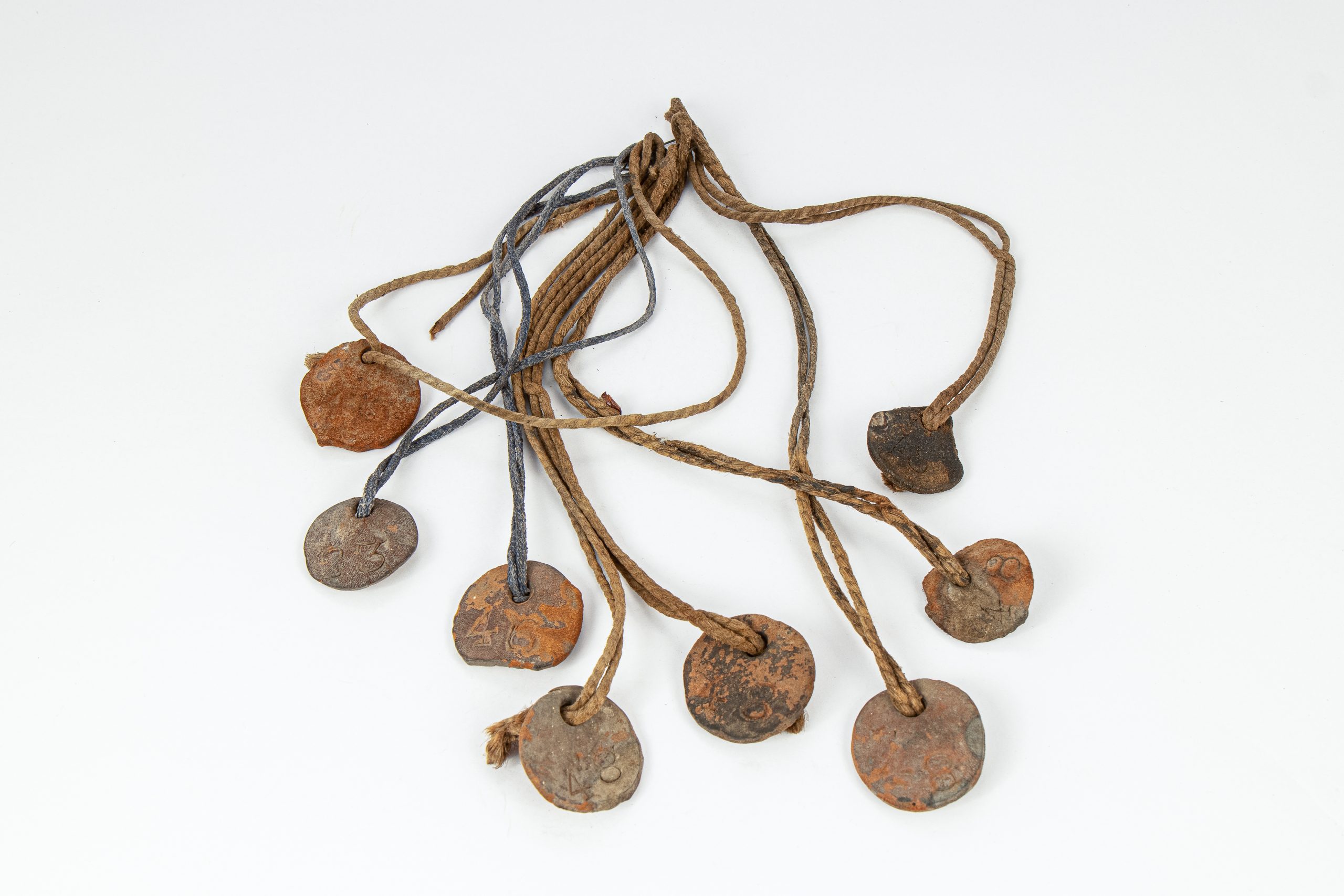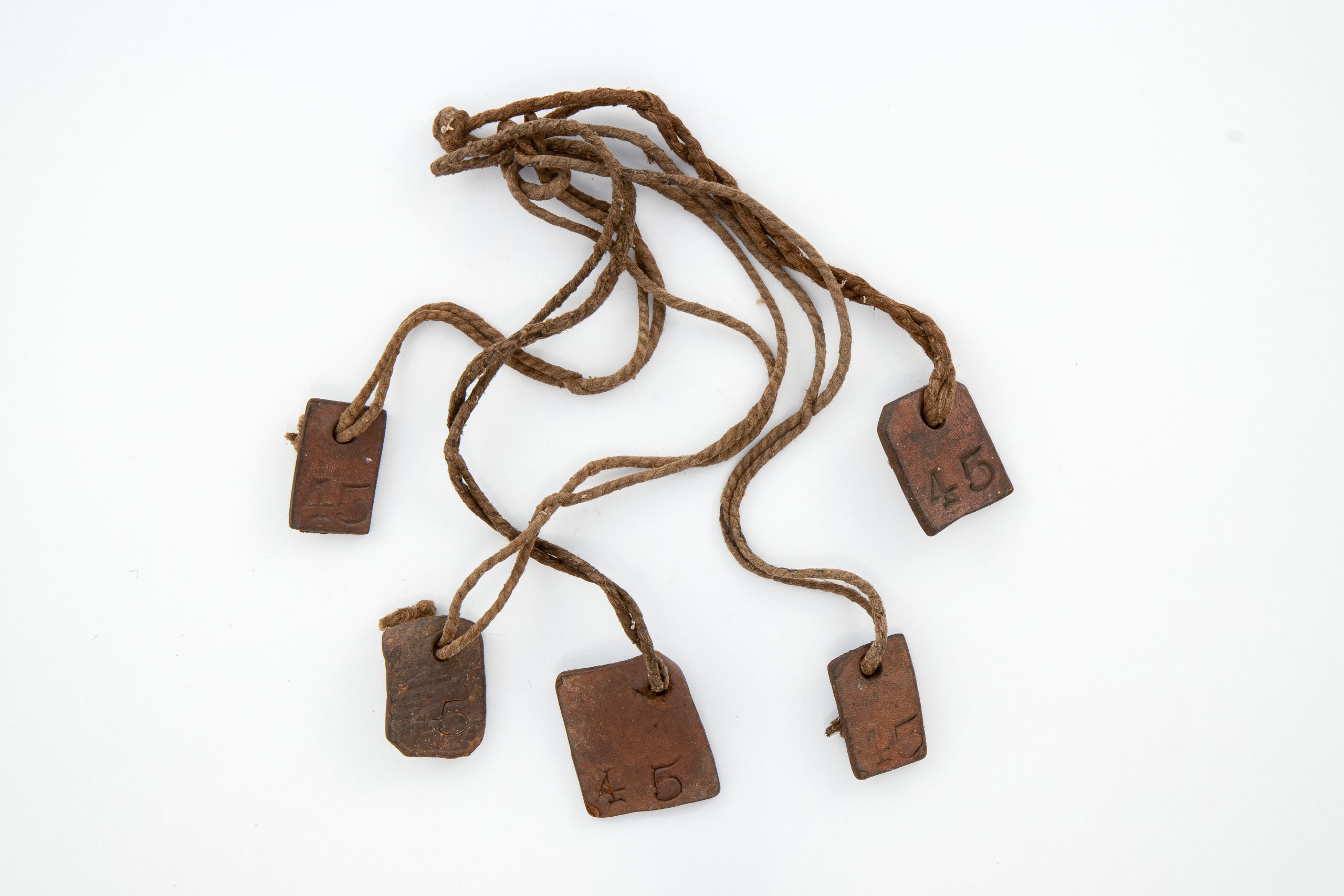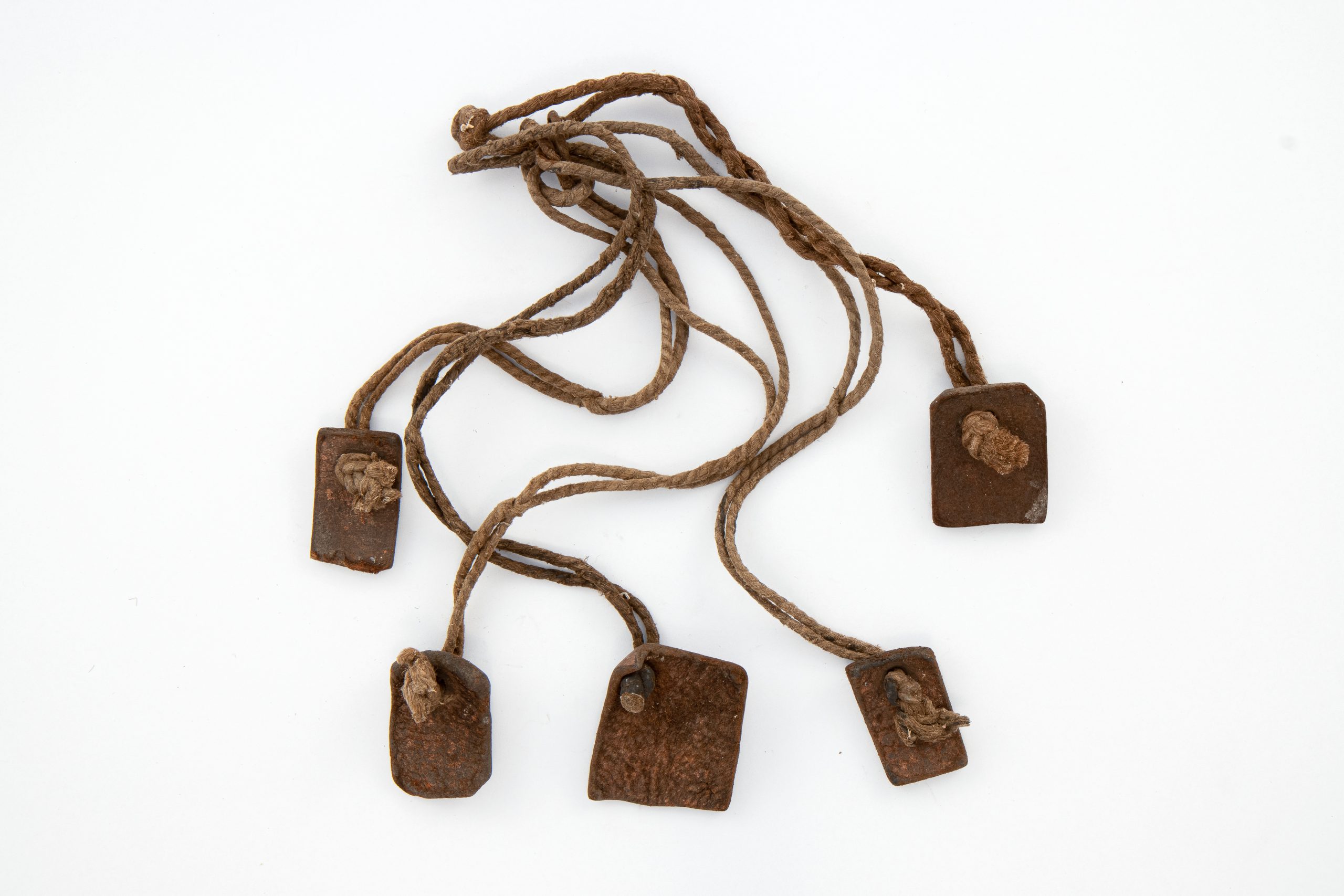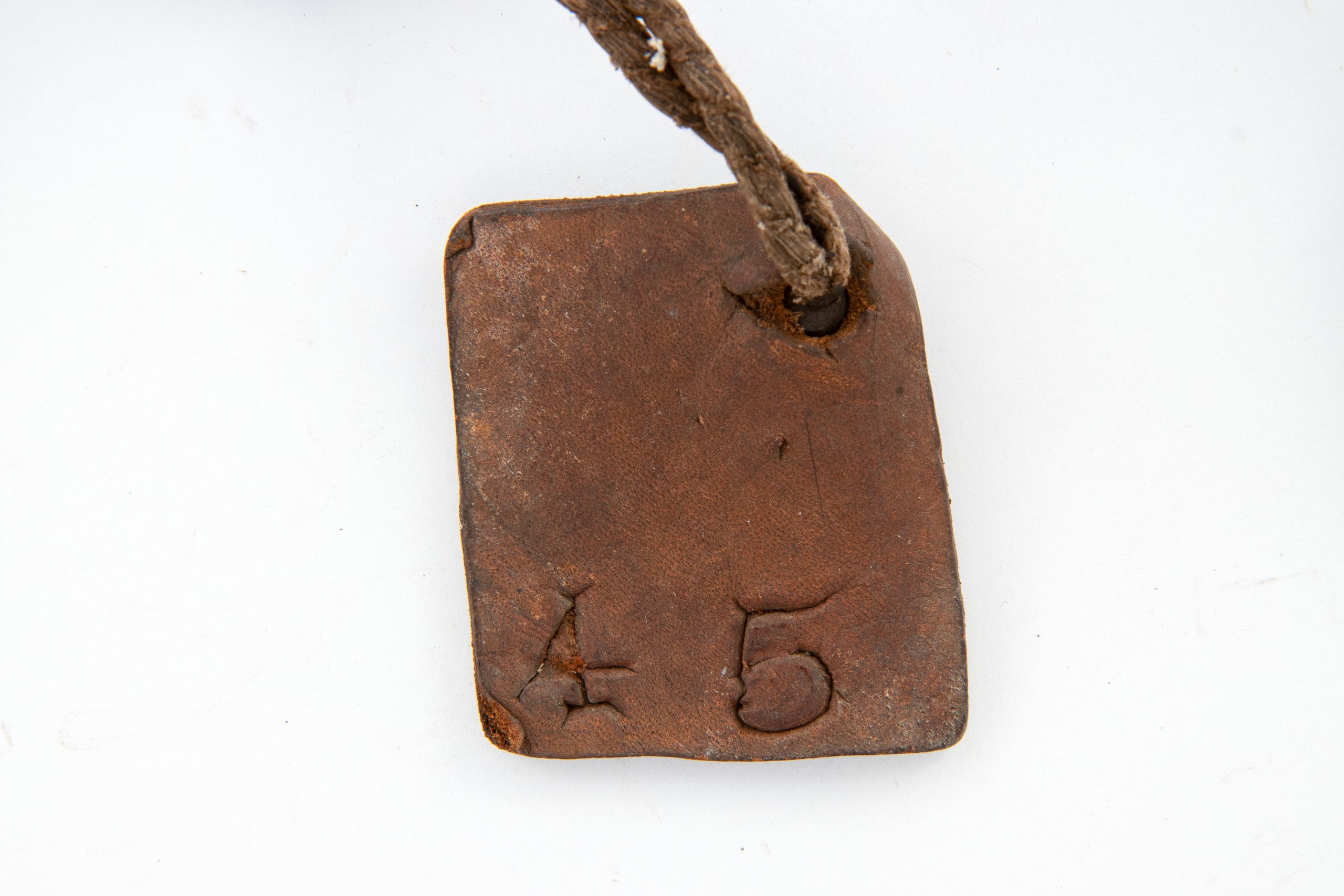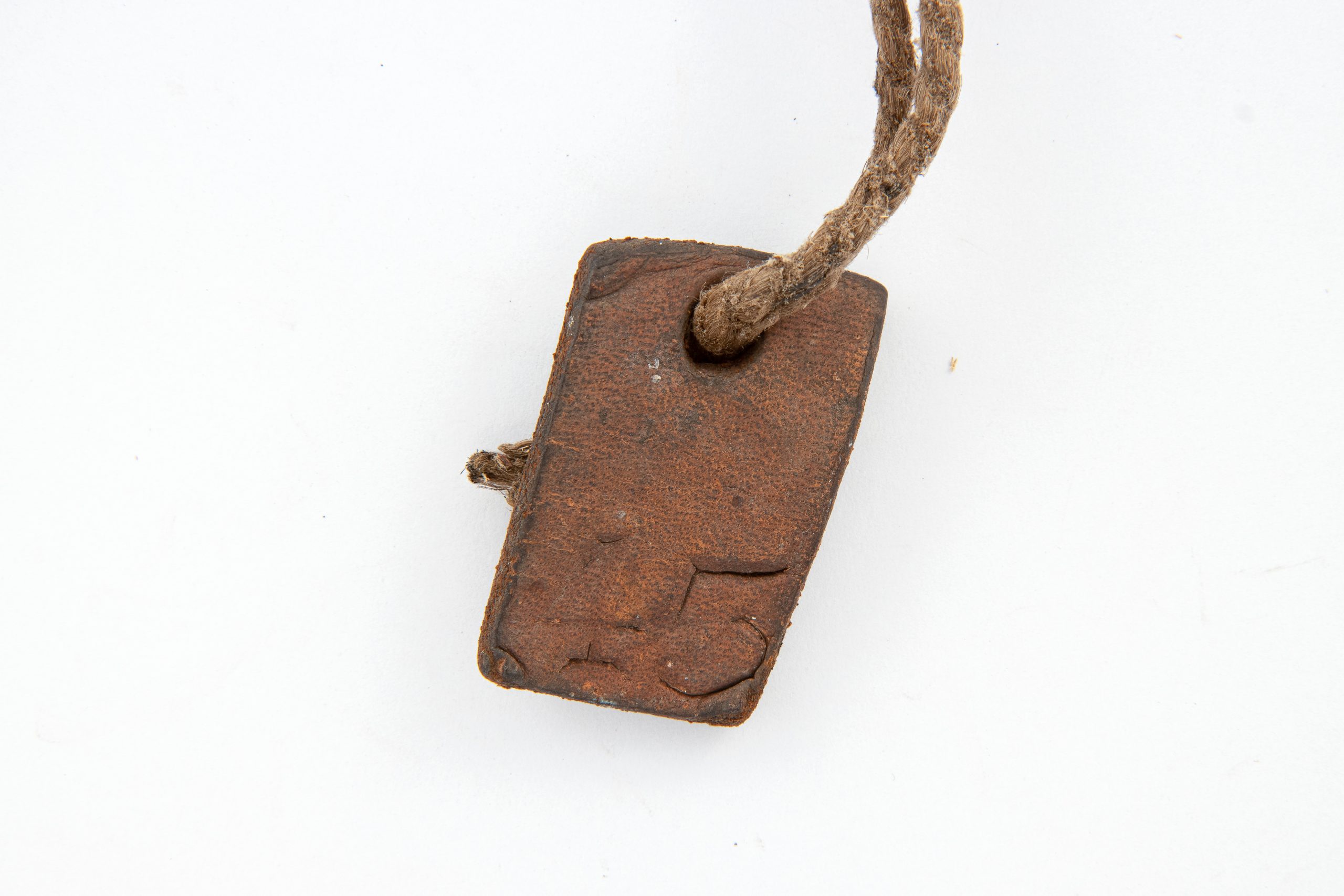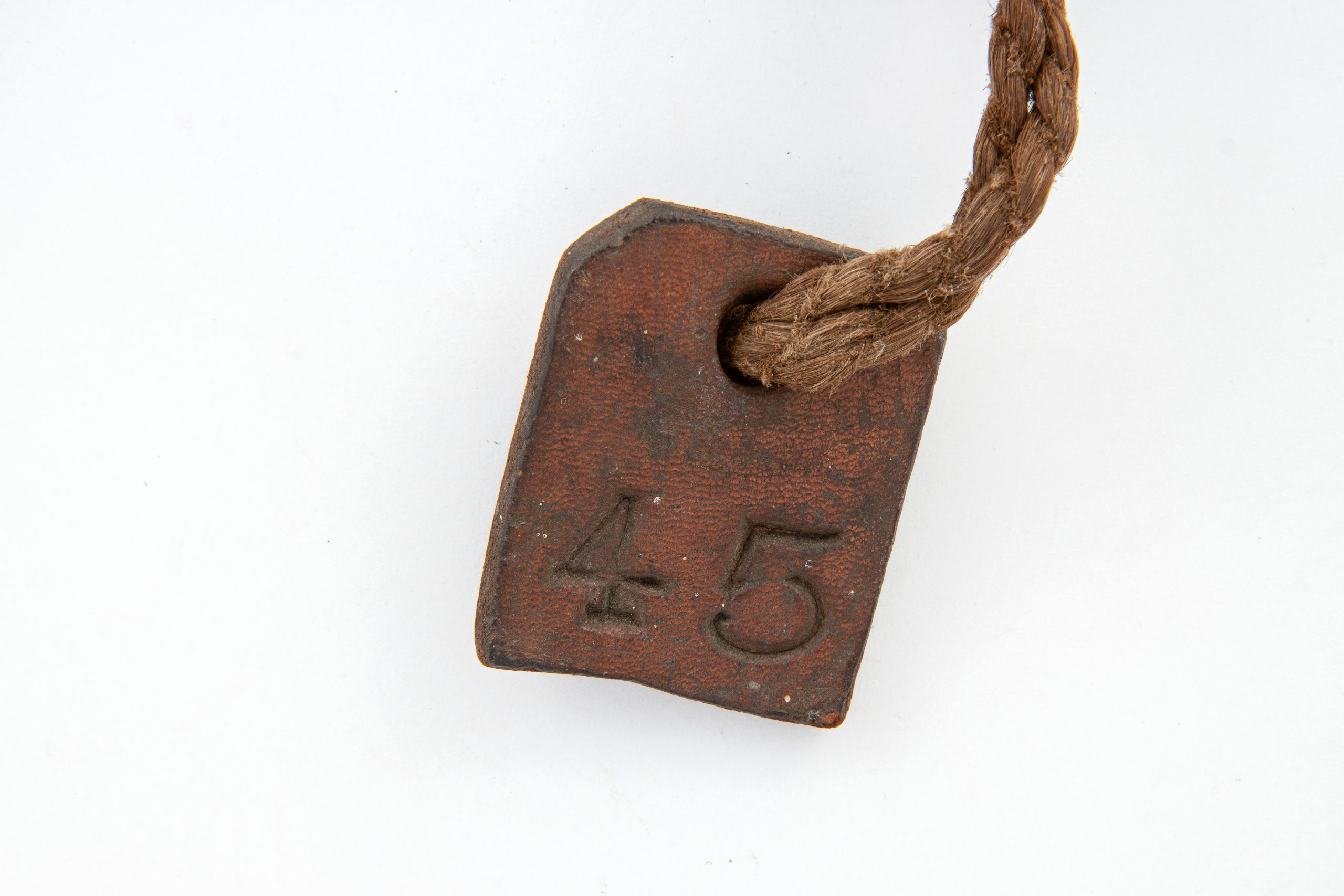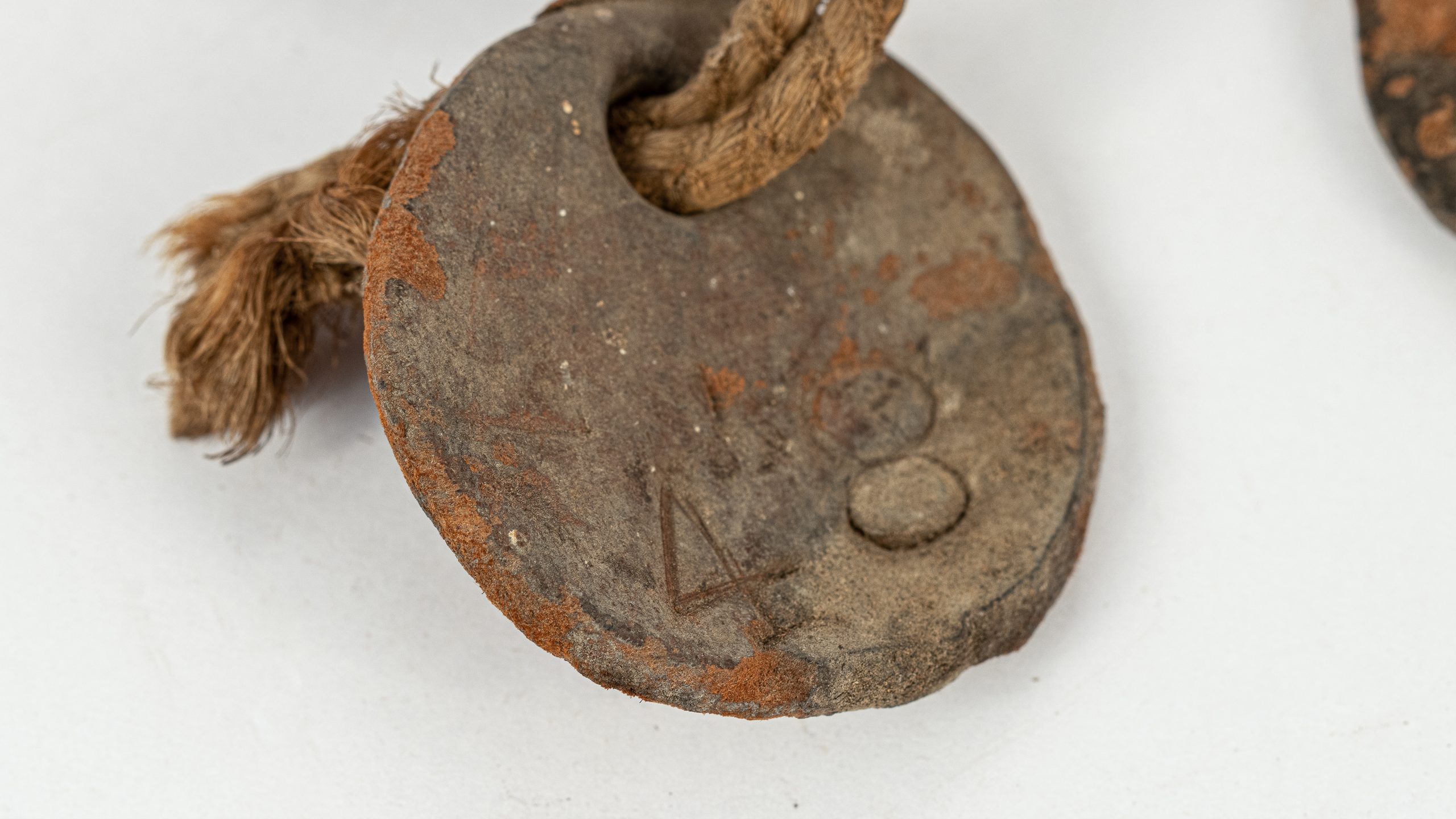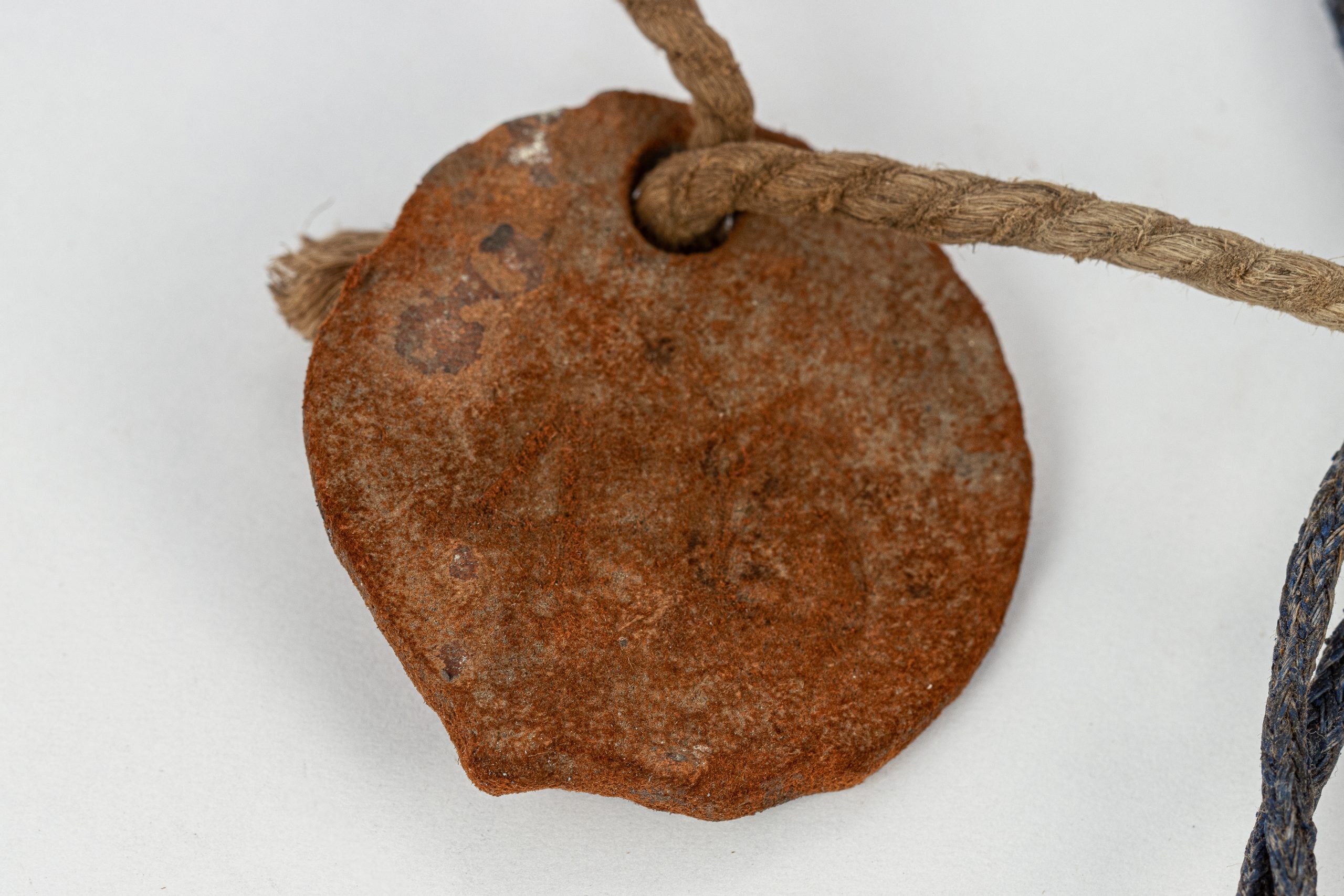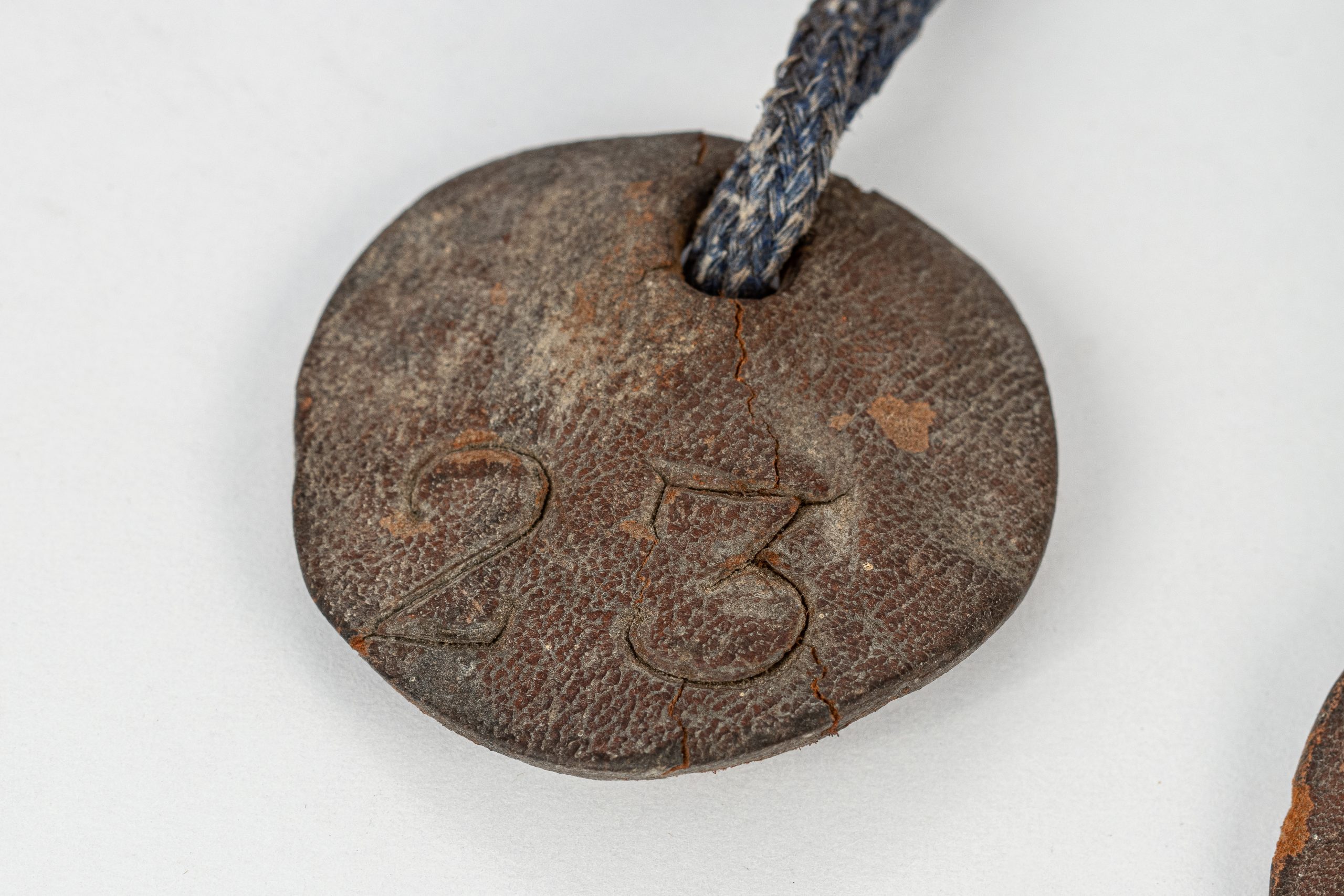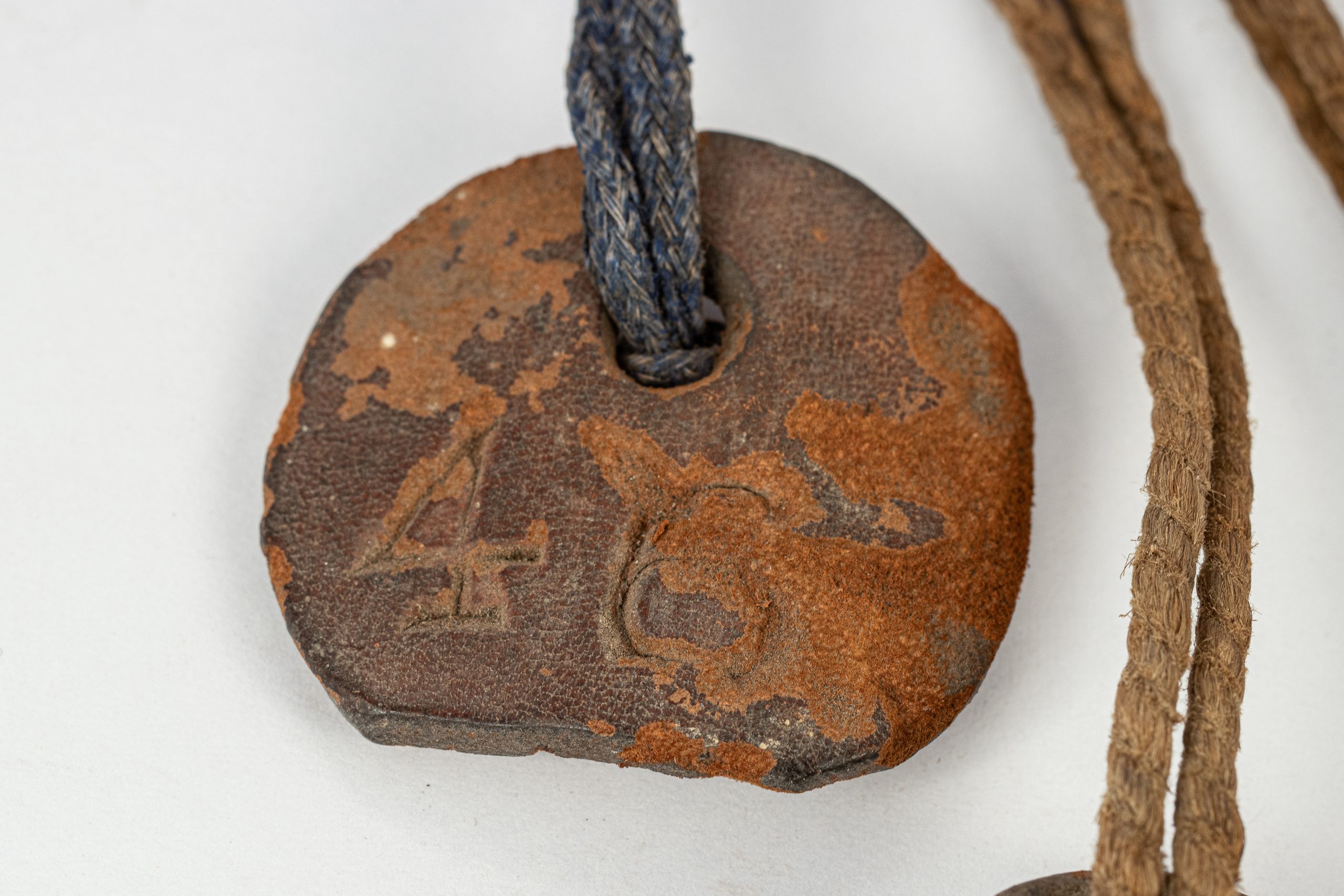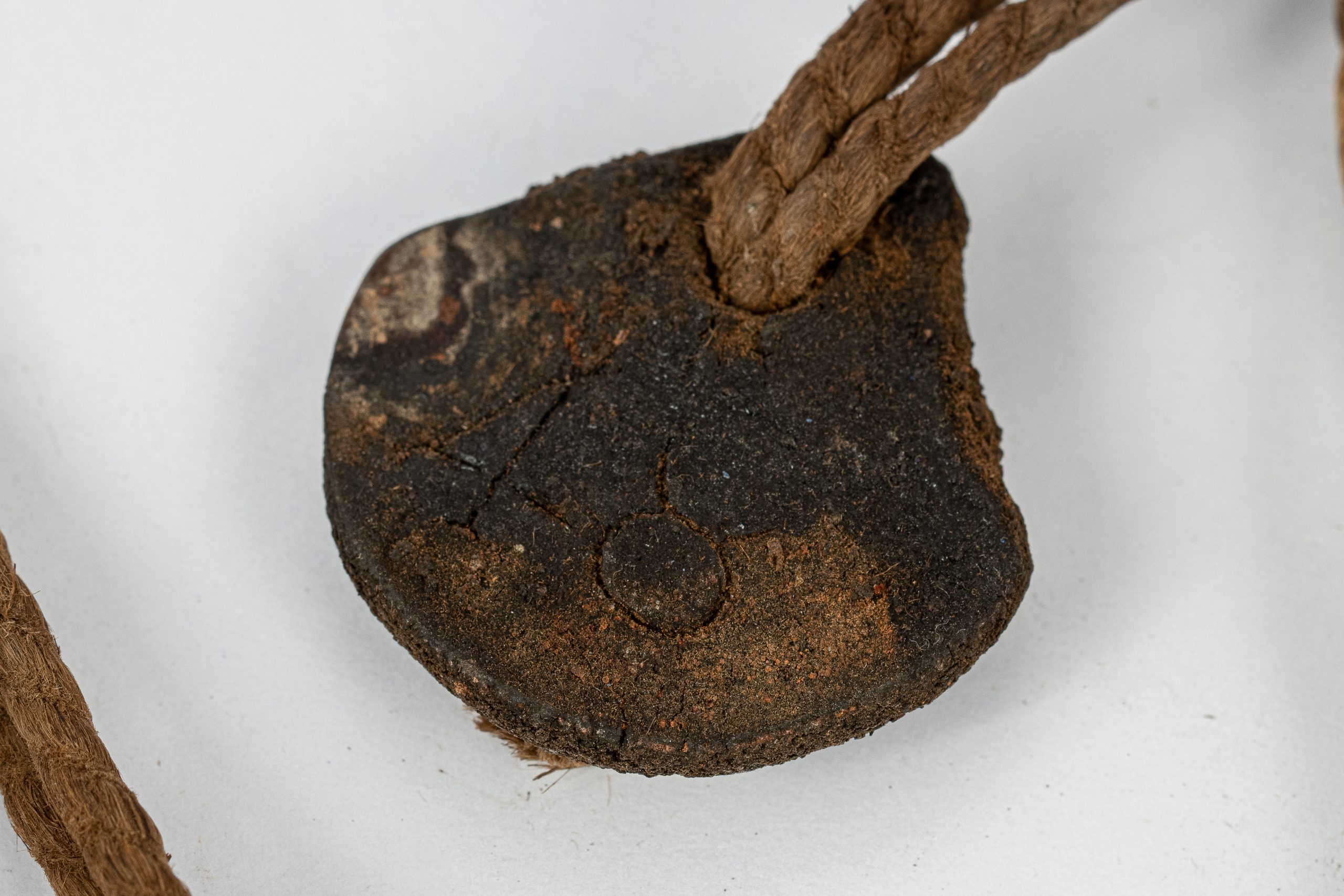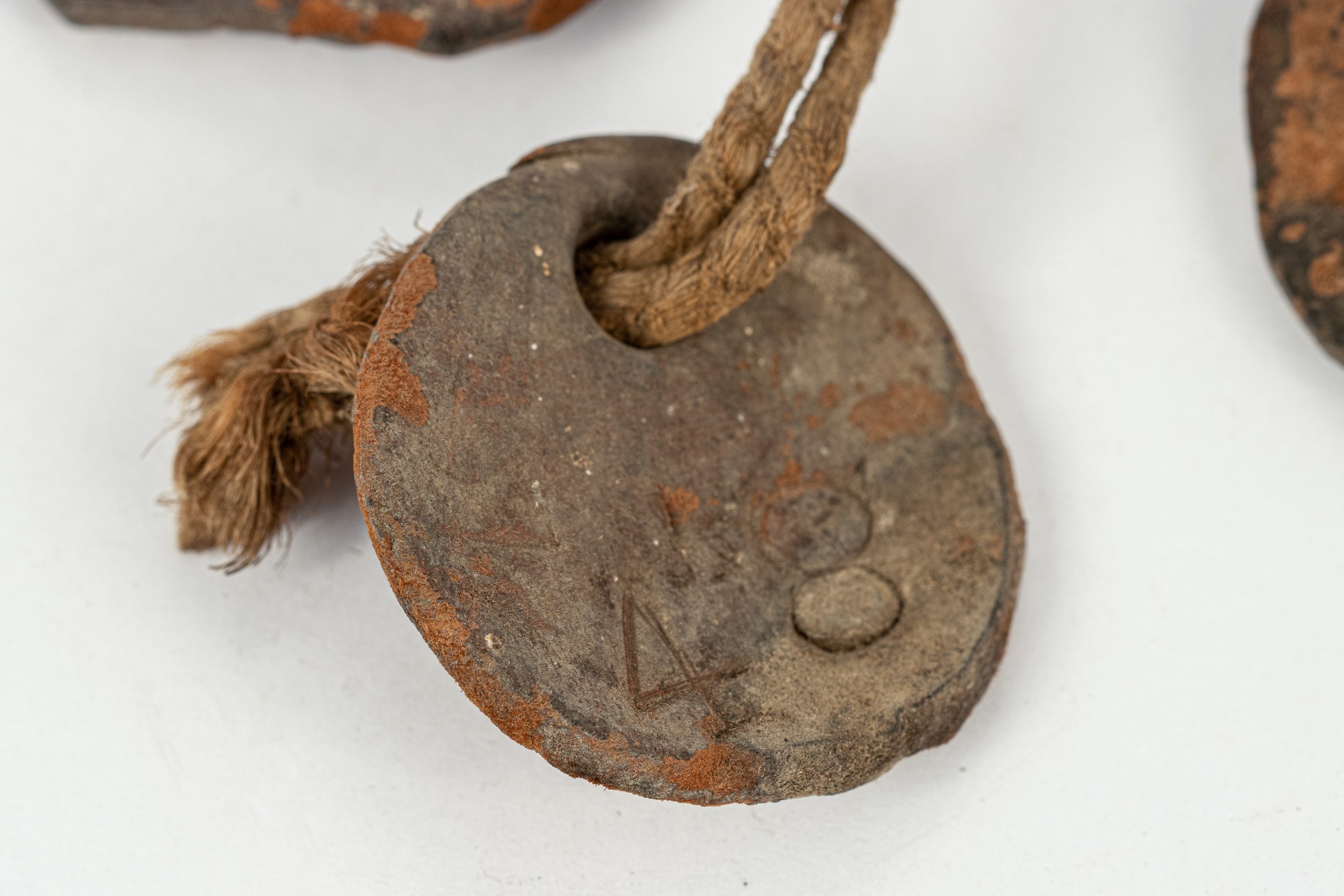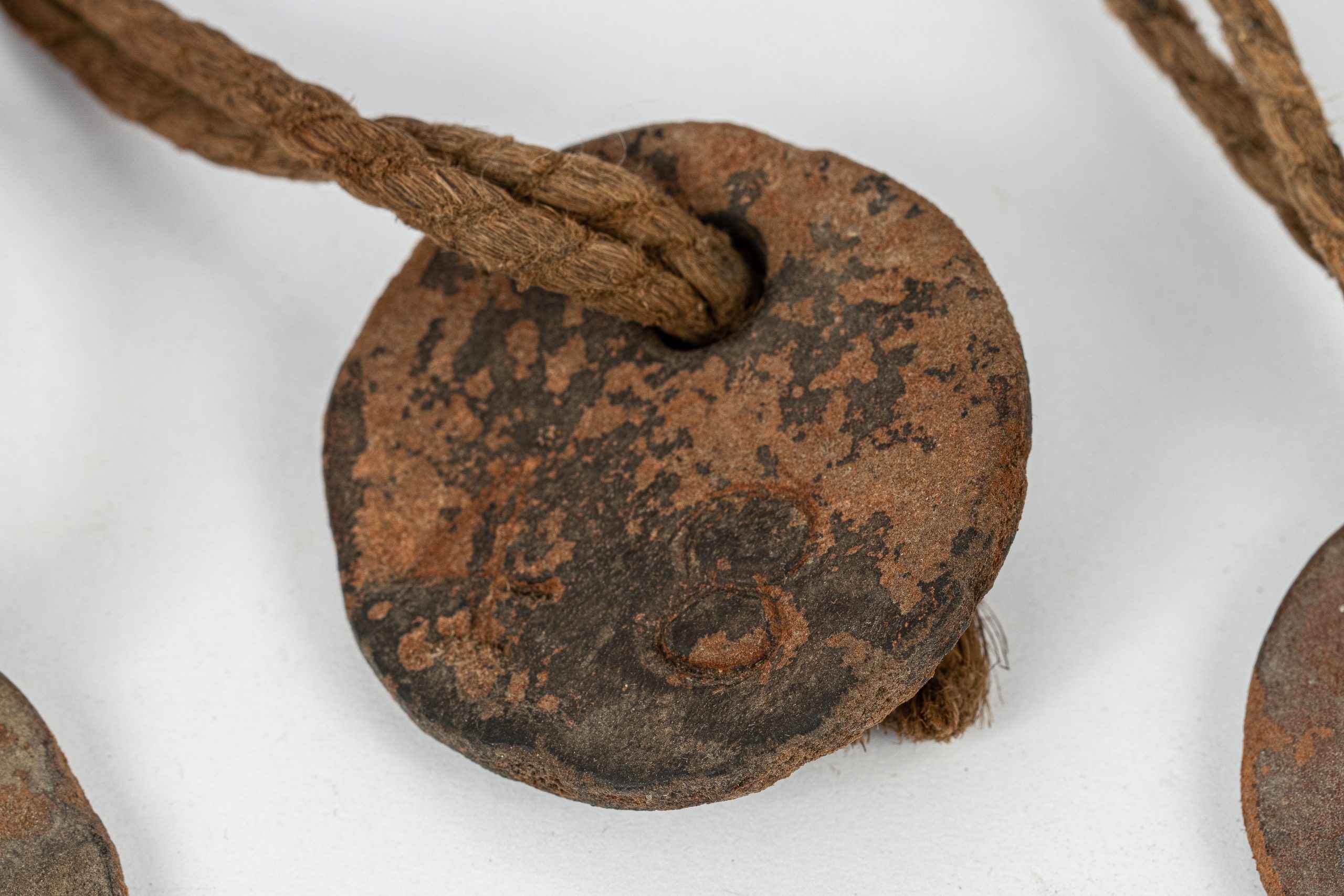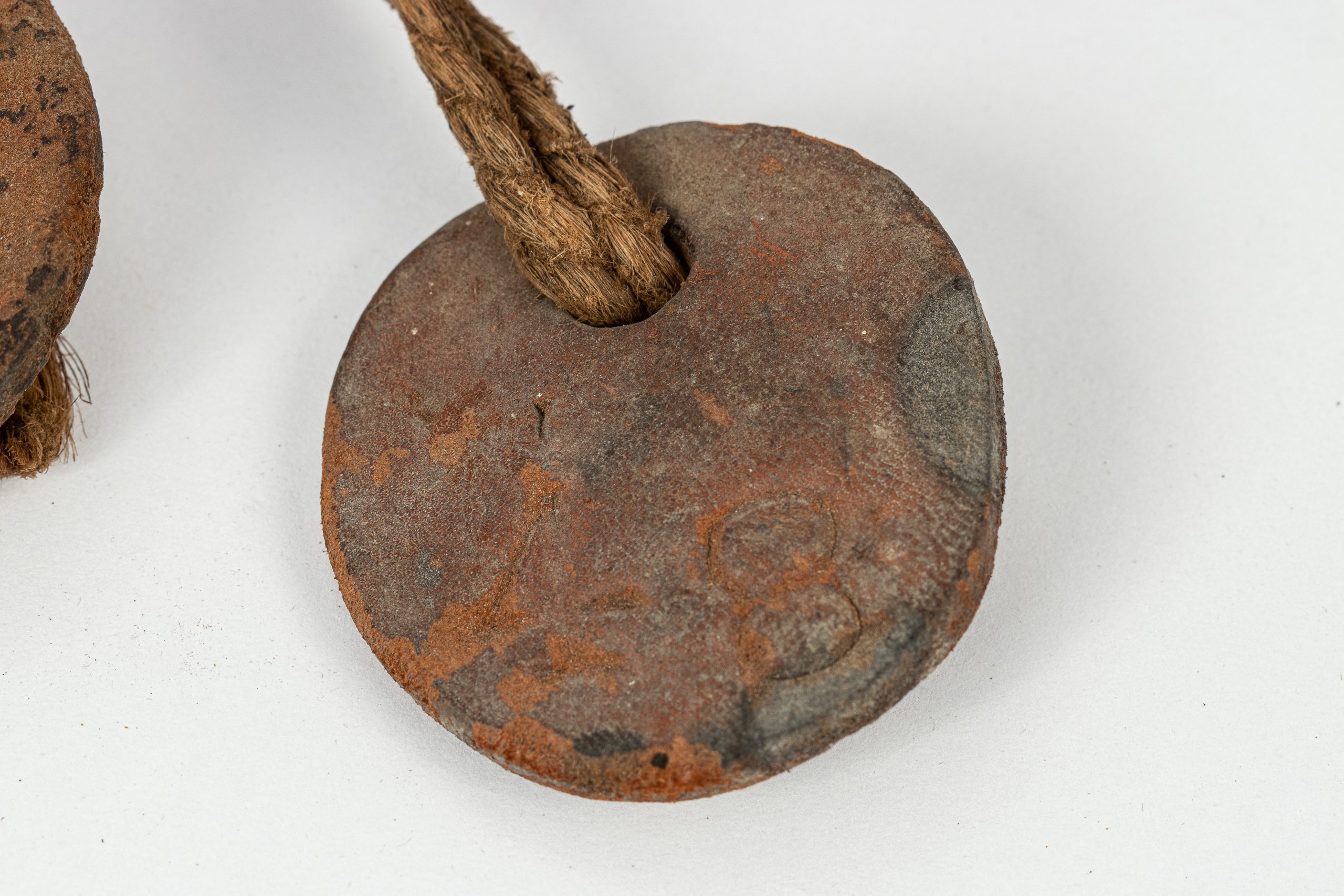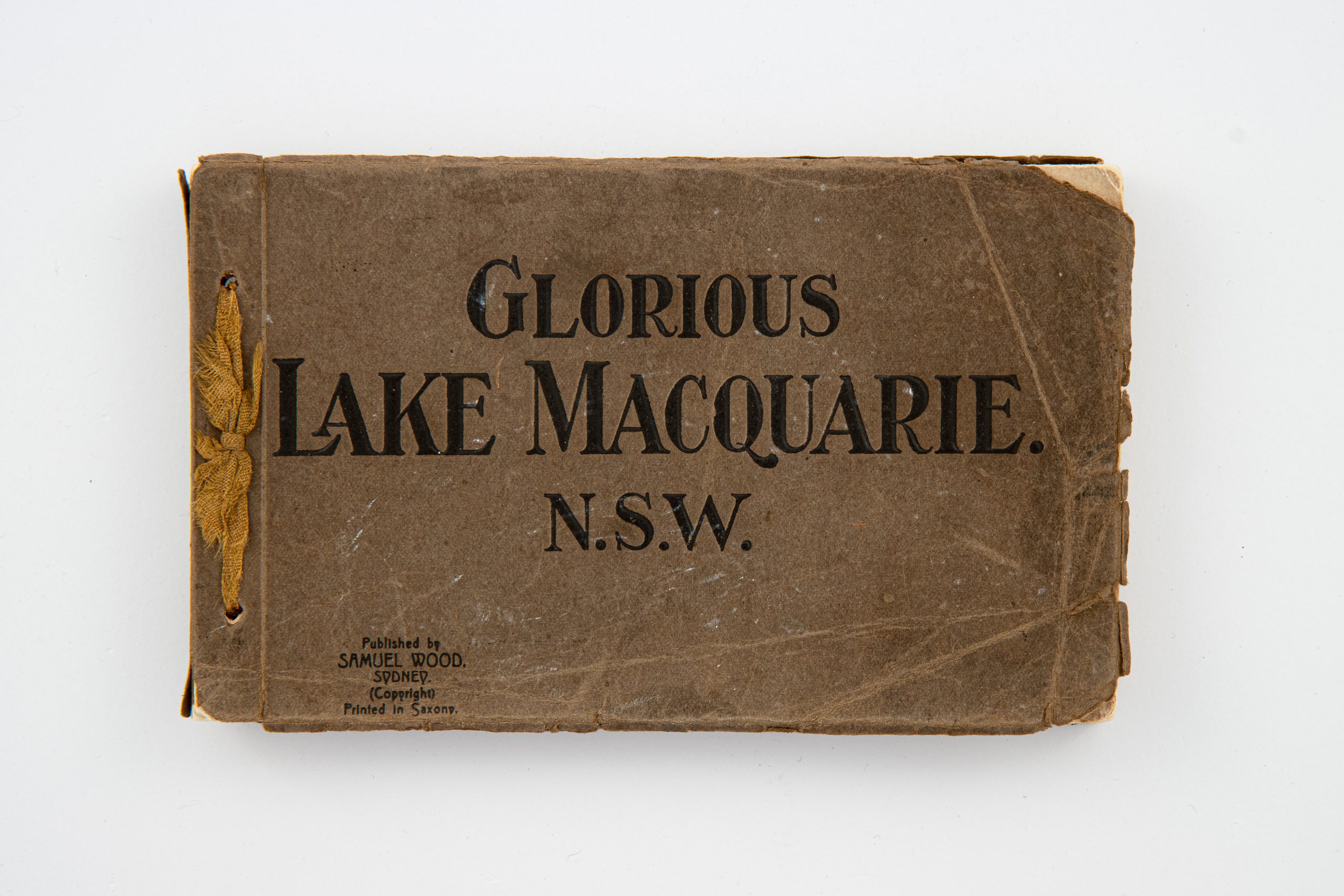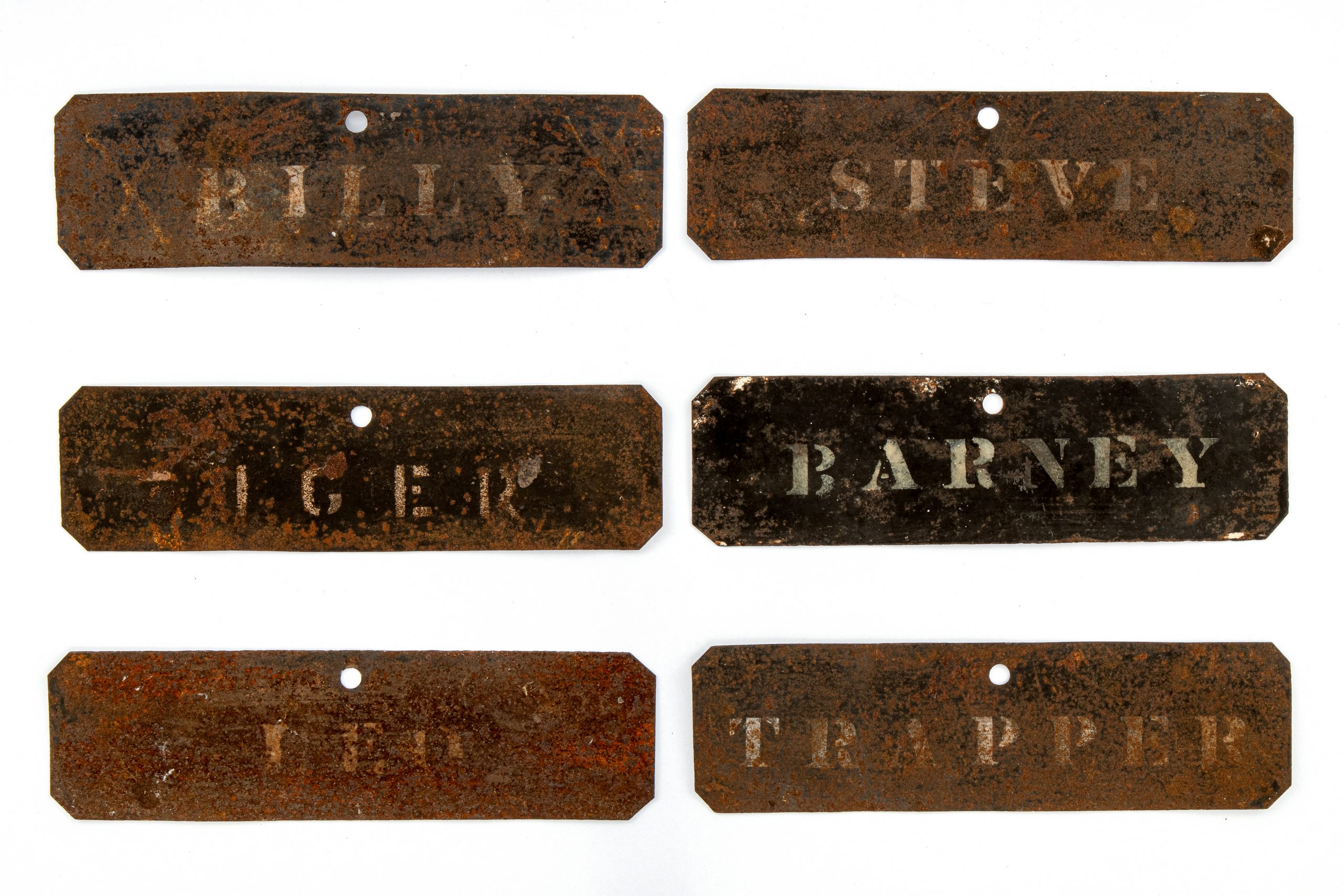Tally Tokens
Fair Payment for Miners in the Hunter Collieries
On the floor of the dark, dusty, pit the miners shuffled about loading skips with the recently sorted chunks of coal. As each pair of miners filled a skip, they attached a string carrying a small piece of leather bearing their number. Then the winding mechanism hauled the skips carrying the rich black ore up the shaft to the daylight above.
Fifteen-year-old Clyde Jones worked as a ‘token boy’ at the Bellbird mine in the Hunter region from 1927, arranging tokens like these on pegs so that a tally could be made against the skip weights recorded for each pair of miners. At the end of each shift, he travelled down the shaft to return the tokens for the next day.
The mining token tradition was rudimentary but provided a fundamental manual accounting system to ensure that miners were paid fairly. Tokens often caused disputes and strikes, such as in 1923, when Cardiff Borehole and South Wallsend miners stopped work because the company was using tokens to trace which miners were sending up excessive amounts of dirt.
Stationed at the pit top, Jones was not paid as well as the miners, but at least he was safer. The miners breathed fine coal dust that caused chronic health problems and risked the constant threat of catastrophic accidents. The fire and explosion that killed 21 miners at Bellbird in 1923 must have been ever-present on their minds as the men descended in the cages to begin their shifts.


